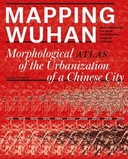Explore

Mapping Wuhan
0 Ungluers have
Faved this Work
Login to Fave
Chinese cities have been expanding since the early 1980s under trends of rapid modernization, urbanization and globalization. Since then they have changed dramatically, and have in the process lost many of their traditional environments and spatial characteristics.
Urban planners and designers have been and are facing unprecedented challenges in China. They not only have to learn to understand the constantly emerging new urban mechanisms, and seek balance among stakeholders, but they also need to cope with the political pressures and the changing context under often extreme time pressure. In such circumstances, future- and design-oriented analysis based on a designerly way of thinking is useful—if not indispensable—for understanding the existing city and deciding on its transformations in a responsible and accountable way that is communicable among designers and with the public. This is especially so, in light of the growing awareness—also in China—of the value and importance of local urban identity, that is always—at least partially—based on history. In this atlas the Delft method of historical morphological analysis is applied to the city of Wuhan, valuing the importance of and finding meaning in the local urban identity of a city with a population over 11 million with a floating population of 14 million. The series of maps show the urban development, covering a century and a half.
This book is included in DOAB.
Why read this book? Have your say.
You must be logged in to comment.
Rights Information
Are you the author or publisher of this work? If so, you can claim it as yours by registering as an Unglue.it rights holder.Downloads
This work has been downloaded 49 times via unglue.it ebook links.
- 49 - pdf (CC BY-NC-ND) at Unglue.it.
Keywords
- China
- Delft School
- History
- mapping
- Morphology
- Technology, engineering, agriculture
- Wuhan
Editions

